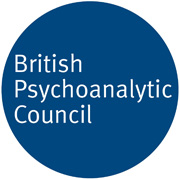The link between Developmental Trauma and Complex PTSD
Psychoanalyst Alfred Adler once said, “A lucky person's lifetime is cured by childhood, while an unlucky person's lifetime is spent curing childhood.”
When a person’s lifetime is spent curing childhood, they may have experienced childhood trauma, or developmental trauma, which is often a result of multiple exposures to adverse childhood experiences, for a prolonged period, such as physical, emotional, or sexual abuse, neglect, abandonment or witnessing domestic violence or death. In the early years of life, children need a safe and secure environment and loving and attentive caregivers for their brains to grow in a healthy and normal sequence.
Neuroscience explains that the lower part of the brain is responsible for functions related to ensuring survival and responding to stress; and the upper part of the brain is responsible for executive functions, such as making sense of our experiences, language, regulating our thoughts, emotions and behaviours, reasoning, and decision-making, amongst many others. When a child is repeatedly exposed to distressing or traumatic situations, then the stress response in the lower part of the brain is repeatedly activated, and the normal sequential neurobiological development in the upper part of the brain is disrupted.
Therefore, children who experience developmental trauma are at risk of significant impairment in the following areas:
- cognitive (eg confusion, dissociation, derealisation, depersonalisation)
- emotional (eg anxiety, depression, fear, panic, anger)
- behavioural (eg re-enactment, aggression, self-harm)
- physical (eg learning difficulties, speech delay)
- relational (eg clinging, distrustful, compliant, difficulty forming relationships)
Watch this video which explains the link between childhood trauma and the brain
Developmental trauma disorder (DTD)
If you experienced childhood developmental trauma and think that you may have PTSD or CPTSD and would like to get psychological support, please do get in touch here.









